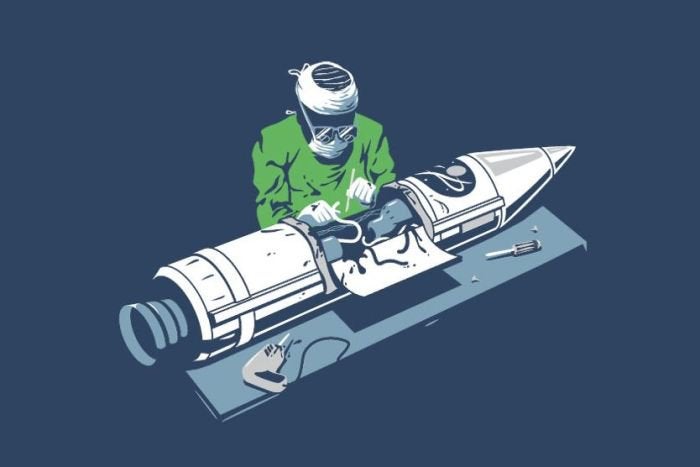OP in the comments: "A part of why I love this article is this great sample questionnaire to determine how fit you are to be making big decisions about the country:
What is your favorite book? (Cannot answer “The Bible.”)
How many languages do you speak? (Let’s be wary of numbers lower than 3.)
What’s your favorite opera? Ballet? (How can we expect arts funding from people who don’t appreciate the arts?)
When did you last use your passport? Where did you go? (If you don’t have a passport, maybe you shouldn’t be anywhere near foreign policy. Ditto if your travels have only ever taken you to Mexico and Canada.)
Who is your favorite political philosopher? Have you read Burke? Paine? (Any good music teacher will tell you, theory first!)
Obviously it's more of a thought experiment than a serious proposal, but imagine if the people making decisions actually appreciated art and travel and culture. It actually sounds like a constituency you'd find in a major European city, with no Billy Bobs in trailer parks to hold us back culturally."
Hmm, I wonder why exactly rural people hate liberals? :thinkin-lenin: Obviously they are just good for nothing disgusting poors. Back to brunch!


Do have to also not fetishize folk tradition though, that's how you end up with "proletarian science" and Lysenko and genetics banned as bourgeois.
Yeah, this was also partially my point in the comment above. Communists tend to fetishize "proletarian culture" as opposed to "bourgeois culture" but this smacks for me too much of what Nietzsche aptly called "resentment mentality". What many mean by "proletarian culture" is not so much a culture in the sense of something meticulously cultivated from humble beginnings but rather crumbs from the master's table (just like all the other life's comforts), phrased provocatively an absence of culture even, a deliberate truncation of human potential. The reason for this is because it serves a fundamentally different purpose than so-called high culture. The main purpose of the culture for the masses in bourgeois states is as "the opium of the people", cheap slop to sedate the toiling masses, whereas high culture is an arms race of sorts of "refinement", of how more elaborate you can make things and thus by its very nature to be enjoyed exclusively by the elites.
Previous attempts at moving away from this foul dichotomy in socialist states and statelets produced what can be called a neo-proletarian culture. In the RSFSR an early organisation and movement promoting this (unfortunately disbanded later on, as censorship, a return to conservative views on art and the wish to completely monopolise all the culture making by the party set in) was aptly called Proletcult. The idea was to not only bring the previously stowed away high culture to the masses but more importantly have the proletarian masses actively create new, explicitly "high" culture all by themselves, thus superseding stale bourgeois gating of culture making . Which fitted in very well with the general communist definition of a human (which after the Russian Revolution was called "The New Soviet Man") as an inherently creative being, the creative process being at the very core, the defining feature of what it means to be human. This is why when the Warsaw Pact states were dismantled the people living there, for example, statistically constituted on average the most "well read" population globally. Today this naturally has seen a massive decline as well.
EDIT: there is something mitigating this to an extent though even today (though with the looming ecological and thus societal collapse no one knows for how long), namely the democratisation of art making through more ubiquitously accessible technology. It's easier than ever before to compose music, paint, shoot films, code video games, write prose and poetry and publish it online, watch and present to the whole world dazzling choreography, etc.